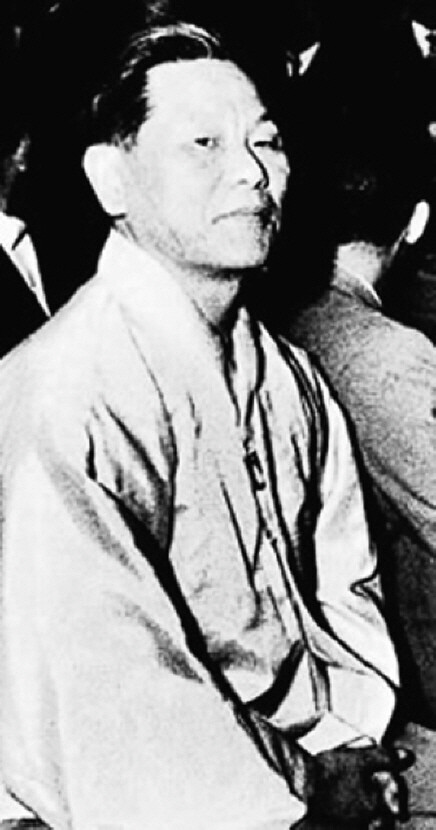hankyoreh
Links to other country sites 다른 나라 사이트 링크
[Editorial] Cho Bong-am and judicial homicide

The Supreme Court handed down a not-guilty ruling in a retrial of Cho Bong-am, pen name Juksan, who was accused of espionage and executed by the Rhee Syngman administration. The verdict comes 52 years after the execution was carried out. In the Progressive Party case that led to his death, Cho was accused of being a communist sympathizer, and of founding a political party through funding and the direction of North Korea. However, these accusations have been shown both historically and legally to have been fabricated by the Rhee administration to eliminate a political rival. It is a welcome sight to see the judiciary setting this mistake right, however belatedly. It also warrants some painful reflection.
Cho’s execution was an act of judicial homicide. As the retrial verdict states, he was an independence fighter as well as a politician who laid the groundwork of the economic system with farmland reforms. He was framed on espionage charges because he stood a strong chance of getting in the way of dictator Rhee’s long-term grip on power.
There were even militant anti-Communists like former Prime Minister Jang Taek-sang and secretary Yun Chi-young proclaimed his innocence, but the Rhee administration paid no mind. The Army Counterintelligence Corps, which possesses no authority for civilian investigations, went to work fabricating charges, while prosecutors hurried to indict Cho without leveling formal charges. The law was reduced to a tool to achieve political ends.
Those in power did not hesitate to use any means of pressure at their disposal. When the court in the first trial ruled Cho not guilty of espionage, the mob that called itself the Anti-Communist Youth League stormed the Supreme Court and ran riot, while prosecutors arrested or interrogated members of the defense counsel. The judiciary bowed to these intimidation tactics. Even though virtually the only witness to the espionage allegations repeatedly stated in the second trial that his account had been false, the court found Cho guilty of espionage and sentenced him to death.
This verdict, which flew in the face of both rules of evidence and basic legal principles, was upheld by the Supreme Court, and the sentence was carried out just 17 hours after a retrial request was denied. This shameful piece of history marks the point where the judiciary began turning a blind eye to, and even assisting in, judicial homicides by those in power.
Similar incidents occurred during the Park Chung-hee and Chun Doo-hwan administrations. Many people were sacrificed in espionage and Communism cases manufactured according to the needs of those in power. Their innocence has been affirmed in a recent series of retrials, but this will not wash away the decades of pain they experienced. The judiciary also bears a large responsibility for abandoning its role as a bastion of human rights in the face of intimidation tactics by past administrations.
Still today, we have seen a number of cases where the law has been abused and courts intimidated for political purposes. Political opponents are denounced as leftists or “Reds,” and people have been prosecuted on farfetched grounds for criticizing the Lee Myung-bak administration. Conservative groups have threatened judges, and the Supreme Court Chief Justice, for delivering not-guilty rulings in these cases. It is a sign of regression from those who have failed to take any lesson from history.
Please direct questions or comments to [englishhani@hani.co.kr]
Editorial・opinion
![[Column] Season 2 of special prosecutor probe may be coming to Korea soon [Column] Season 2 of special prosecutor probe may be coming to Korea soon](https://flexible.img.hani.co.kr/flexible/normal/500/300/imgdb/original/2024/0426/3317141030699447.jpg) [Column] Season 2 of special prosecutor probe may be coming to Korea soon
[Column] Season 2 of special prosecutor probe may be coming to Korea soon![[Column] Park Geun-hye déjà vu in Yoon Suk-yeol [Column] Park Geun-hye déjà vu in Yoon Suk-yeol](https://flexible.img.hani.co.kr/flexible/normal/500/300/imgdb/original/2024/0424/651713945113788.jpg) [Column] Park Geun-hye déjà vu in Yoon Suk-yeol
[Column] Park Geun-hye déjà vu in Yoon Suk-yeol- [Editorial] New weight of N. Korea’s nuclear threats makes dialogue all the more urgent
- [Guest essay] The real reason Korea’s new right wants to dub Rhee a founding father
- [Column] ‘Choson’: Is it time we start referring to N. Korea in its own terms?
- [Editorial] Japan’s rewriting of history with Korea has gone too far
- [Column] The president’s questionable capacity for dialogue
- [Column] Are chaebol firms just pizza pies for families to divvy up as they please?
- [Column] Has Korea, too, crossed the Rubicon on China?
- [Correspondent’s column] In Japan’s alliance with US, echoes of its past alliances with UK
Most viewed articles
- 1[Column] Season 2 of special prosecutor probe may be coming to Korea soon
- 2‘We must say no’: Seoul defense chief on Korean, USFK involvement in hypothetical Taiwan crisis
- 3N. Korean delegation’s trip to Iran shows how Pyongyang is leveraging ties with Moscow
- 4Amnesty notes ‘erosion’ of freedom of expression in Korea in annual human rights report
- 5[Editorial] Korea’s surprise Q1 growth requires objective assessment, not blind fanfare
- 6Division commander ordered troops to enter raging flood waters before Marine died, survivor says
- 7[Reportage] On US campuses, student risk arrest as they call for divestment from Israel
- 8Korea sees more deaths than births for 52nd consecutive month in February
- 9Is N. Korea threatening to test nukes in response to possible new US-led sanctions body?
- 10Is Japan about to snatch control of Line messenger from Korea’s Naver?